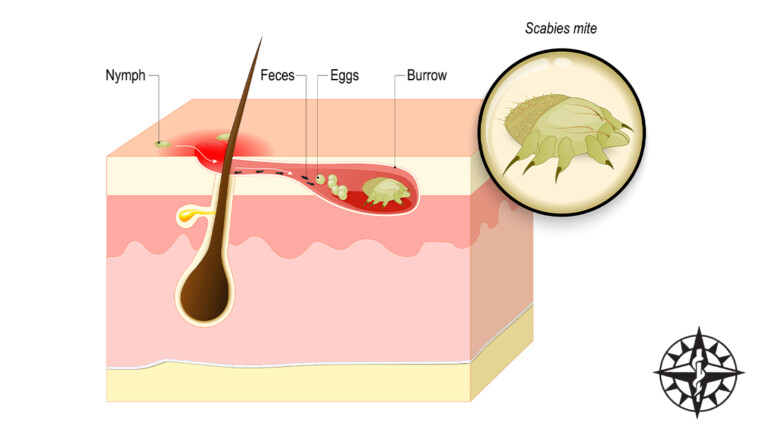Published on: December 9, 2022
What is Zika Virus?
Zika virus is an arthropod-borne (transmitted to humans via insect) disease that is primarily spread from the bite of an infected Aedes species mosquito. It can also be spread to partners via sex and from mother to baby via pregnancy. When infected, the Zika virus is primarily a threat to pregnant women since it is directly linked to birth defects like microcephaly and Guillain-Barré syndrome.
Additionally, some extreme cases have led to miscarriage and stillbirth. Learn more about the risks of the Zika virus with pregnancy in the YouTube video below.
Zika Virus Symptoms
Hospitalization for the Zika virus is rare since symptoms are typically mild. Oftentimes, Zika virus symptoms can even be non-existent. As a result, many people are unaware of when they have been infected. While it is rare for the Zika virus to be fatal, it is still particularly important to treat symptoms seriously. Some of the most common Zika virus symptoms are:
- Fever
- Skin Rash
- Headache
- Muscle or Joint Pain
- Conjunctivitis (red eyes)
*Information sourced from the CDC.
If you are experiencing any of these symptoms and you have recently traveled to a Zika-infected area, then you will want to get tested, especially if you are pregnant. You should contact your healthcare provider to get either a urine or blood test. Since there are no approved medications or vaccinations for the Zika virus, treatment and recovery are similar to how one would handle a common cold or flu. Regardless, contact and exposure with other people should be minimized until symptoms reside.
You can learn more about the Zika virus from this short YouTube video below.
Zika Virus in Florida | 2016 Zika Outbreak in Florida
The first reported cases of Zika virus were found in Uganda in 1947. It wasn’t until 2015, that South America, Central America, and the Caribbean experienced a large Zika outbreak. The United States had its first Zika virus case in 2016 in the U.S. territories of Puerto Rico and the U.S. Virgin Islands. Within the year, Zika cases had spread in Florida and Texas.
With Florida being a tourist hot spot and a breeding ground for mosquitoes, it was inevitable for the Zika outbreaks in South America, Central America, and the Caribbean to eventually spread to the continental United States. In the summer of 2016, the first cases of Zika virus were reported in Miami-Dade county. These cases eventually multiplied within a small neighborhood leaving 29 people infected.
After aerial spraying the area, the neighborhood outbreak slowed but was beginning to spread throughout other counties, including Hillsborough County. By the end of 2016, there were 1,456 reported cases of the Zika virus in Florida. Since 2017, there have not been any reported cases of the Zika virus in Florida and there is no current local transmission in the continental United States.
How Did Zika Cases Decline in the U.S.?
Initially, Zika virus cases spiked in the summer of 2016 due to tourism in Zika-infected areas. These regions experienced hot and humid summer weather which was the ideal environment for mosquitoes to live. Eventually, as more people contracted the Zika virus experts say that herd immunity was likely to contribute to the rapid decline in cases in the U.S.
Similarly, to what we experienced with other infectious diseases, once people have contracted the disease, they gain a level of immunity to the disease. While there was an initial spike in Zika cases, these people became immune to the virus. Since there were fewer people with active Zika virus in the population, there were fewer mosquitoes biting people with an active virus. Therefore, the case numbers were able to continue to stay low since transmission became less probable.
Key Facts to Remember
- The primary way the Zika virus spreads is through infected mosquito bites.
- Since Zika is known for causing birth defects, pregnant women, fetuses, and infants have the highest risk of complications from the Zika virus.
- Even if an infected person has no symptoms, they can still spread the Zika virus via sex or via mosquitos.
- Before traveling, check to see what countries are in a Zika-risk area.
- Covering up with long sleeves or EPA-registered insect repellents can help reduce the chance of getting an infected mosquito bite.
U.S. Zika Resources
- Zika Testing | Florida Department of Health in Pinellas (floridahealth.gov)
- Zika in the US | Zika virus | CDC
- Zika Virus (bcm.edu)
- Questions About Zika | Zika Virus | CDC
- About Zika Virus Disease | Zika virus | CDC
- What is the Zika Virus? | Johns Hopkins Medicine
- Zika virus (who.int)
Infectious Disease Associates of Tampa Bay (IDATB)
Infectious Disease Associates of Tampa Bay (IDATB) provides high-quality healthcare services for patients in the Tampa Bay metro area. If you or someone who lives with you would like to be evaluated for an infectious disease, then IDATB is here to help. With decades of experience, IDATB is the leading resource for infectious disease education and treatment in the Tampa / Clearwater / St. Petersburg metro area. If you have any questions about infectious diseases or the Zika virus, then please call IDATB at 813-251-8444 to schedule an appointment.





